In the streets of Ghana and beyond, Valerie Labi is changing the face of transportation by manufacturing bikes that run solely on electricity.
With a passion for environmental sustainability, her bikes run on two rechargeable batteries that can go up to 140 kilometres on a single charge.
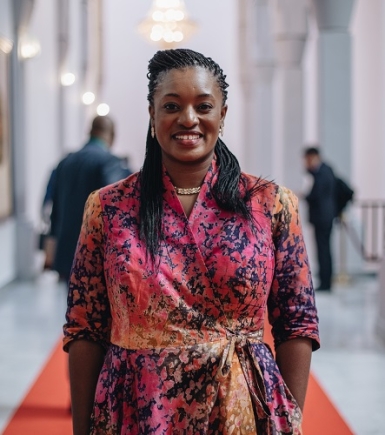
This means that a delivery rider can do a whole day’s work. In liaison with delivery companies such as Glovo and Bolt, she has built a petrol-free fleet of bikes where service delivery meets speed and convenience.
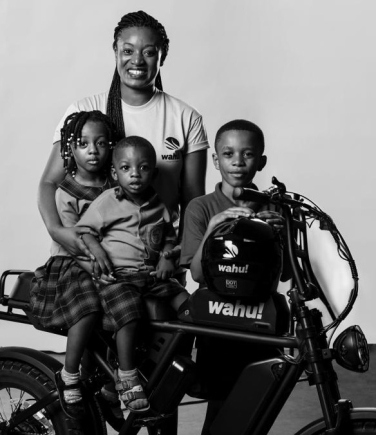
Her company and workshop, Wahu Mobility, at Spintex, Accra is where skilled workers design and build each electric bike.
Adding to her life as a leader and entrepreneur, Ms Labi is also family-oriented and married with three children.
She holds a Bachelor of Science degree in Economics from Southampton University and a Master’s degree in Sustainability Leadership from Cambridge University, both in the United Kingdom.
According to her, her hobbies span acoustic guitar playing, athletics, public speaking, travelling and barbecue grilling nights.
“I have been to 59 countries so far. Last month, I was in Hong Kong, Morocco, Portugal and Spain for some business and fun”, she added.
Read on as The Mirror explores the life of Ms Labi and her start-up company founded in 2020.
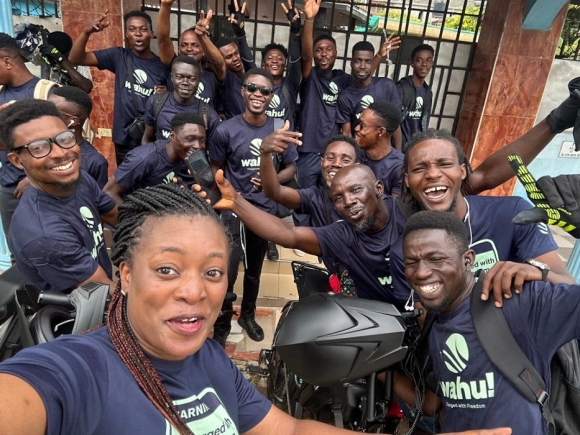
The Mirror (TM): Who is Valerie?
Valerie Labi (VL): I would describe myself as a social entrepreneur who believes industrialisation is a path to economic development. Officially, my name is Valerie Abena Konyo Labi, alias Mrs Dagadu.
I hold a chieftaincy title as Gundugu Sabtanaa I, which was bestowed on me by the Paramount woman Chief of the Dagbon traditional area in the Northern Region of Ghana. My title literally means Queen of Toilets, haha, which was conferred on me because of my sanitation company, Sama Sama.
I was born and bred in Welwyn Garden City in the United Kingdom to Ghanaian parents, Mr Fred and Mrs Ama Labi, both entrepreneurs. My lovely husband, Nii Osah Dagadu, is the Head of Sales at Old Mutual Insurance in Accra and my amazing children are Mawuko, Amerley and Amartey.
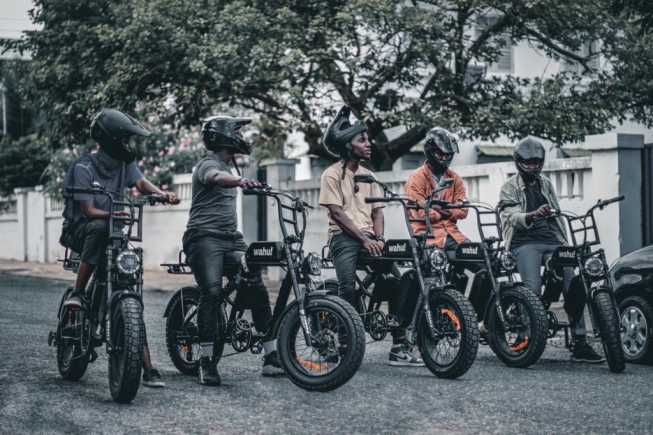
I am also a 2014 ‘Mandela Washington Fellow’, through which I had the honour to learn about leadership from people like the Ex-President of the United States, Jimmy Carter.
I am lucky to have the support of both my family and my lovely in-laws. My sisters-in-law are also entrepreneurs.
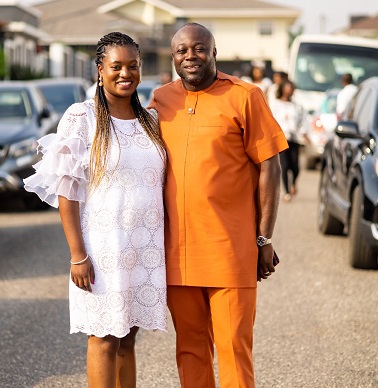
TM: How was life growing up?
VL: I went to Queenswood School, a boarding school in the United Kingdom, where I was the first black Head Girl. When I first visited my homeland, Ghana, I fell in love with the people and I just knew I had to come back.
There was so much potential and a lot I could do to help the economy. So, 15 years ago, I returned and never looked back.
TM: What did you do upon returning?
VL: I worked in various companies including Vodafone and Global Mamas. Later, I lived five and six years in Kumasi (Ashanti Region) and Tamale (Northern Region), respectively.
In the Ashanti Region, I took over a sanitation company called Clean Team, which rented out household toilets, and people would pay via mobile money for the waste collection.

In the north also, I started another sanitation business called Sama Sama, which is probably the biggest sanitation company there.
I think now, we have around 300,000 people using Sama Sama, and that was really my first big venture into social enterprise.
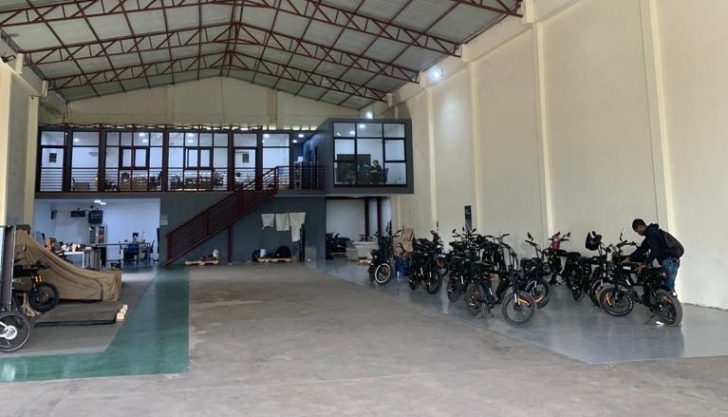
Wahu Mobility
TM: How did the idea come about?
VL: Well, from my travels to and engagements in the various regions of Ghana, I found out that aside from sanitation, transportation was also a challenge.
So I started looking at creating a business in mobility where electric bikes could be used for delivery. As fate would have it, I started buying secondhand bicycles that were going to Bolgatanga.
So my co-founder, Ghanaian Aerospace Engineer Quincy Agyapong, could convert them into electric bikes.
It took us two years to effectively design a bike that we thought was fit for the African road, then we connected with Jumia and other delivery companies to get started.
TM: How did you fund the initiative?
VL: Thankfully, I was connected to investors through Impact Hub Accra. At the time, sustainability was only really acknowledged by the Germans and Dutch so they loved my idea and supported me with a grant with help from Impact Hub in Accra.
TM: How has the journey been?
VL: In the beginning, it was challenging because most people did not believe in my dream of electric mobility in Africa.
However, with support from my amazing team and my board chairman, Peter Scwarzenbauer, we started building an Electric Vehicle zone.
Currently, I have over 100 bikes in circulation and we give the bikes on a ‘work and pay’ basis directly to delivery riders. The riders then pay GH¢300 weekly for two years before fully owning the bikes.
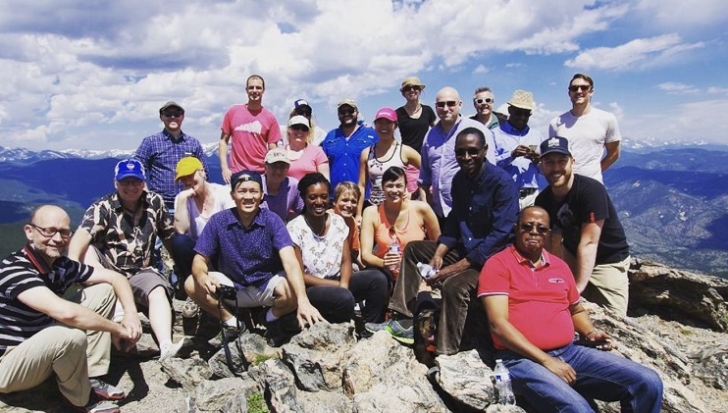
TM: What is so special about your bikes?
VL: Our bikes are all installed with trackers that are connected to our back-end system, so theft is unlikely. We have been in existence for three years now, with only one attempted theft. But we located the bike and collected it.
Also, unlike petrol vehicles that emit harmful chemicals such as carbon, electric vehicles do not. They are eco-friendly and cost-effective and our bikes take just about three hours to fully charge.
The rider also gets insurance, assured work, and no need for a license, maintenance, helmet, lock, gloves, accessories and training.
TM: What does the future hold for you and your business?
VL: The future is certainly great with electric mobility. Thankfully, we also make some revenue from tracking how many kilometres our riders ride. We then sell those kilometres (tokens) in the form of ‘carbon avoided’ to international governments.
![]()
Delivery riders and some investors pictured together
This was an initiative brokered by the Environmental Protection Agency and we hope to reach 250,000 delivery riders by 2030.
Works are also in place to expand the warehouse into an e-bike factory where we will work with other electric vehicle companies and offer training to engineers. We also have branches in Togo and Zambia and, hopefully, we will expand globally soon.
TM: Have you encountered any major challenges?
VL: Fundraising, clarity of government policies and retaining great staff are my three biggest challenges. The economy is hard so it is difficult to convince investors to invest in Ghana.
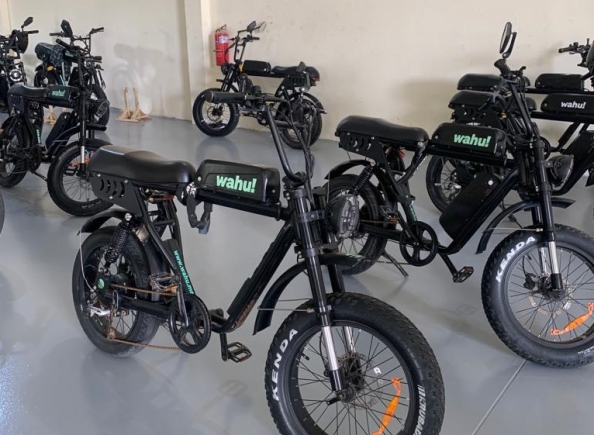
Also, a lot of young people want to go abroad, and without companies like Wahu Mobility, we will lose some of our brightest minds.
TM: Any other hobbies?
VL: For sure, I like observing culture, behaviours and neighbourhoods just so I can understand how things work. So, sometimes, my husband and I will just drive to a place to wander around.
I also love mentoring young people and have spent my last year working with other entrepreneurs, supporting them to turn their dreams into businesses.
Writer’s email: appreygloria@gmail.com
